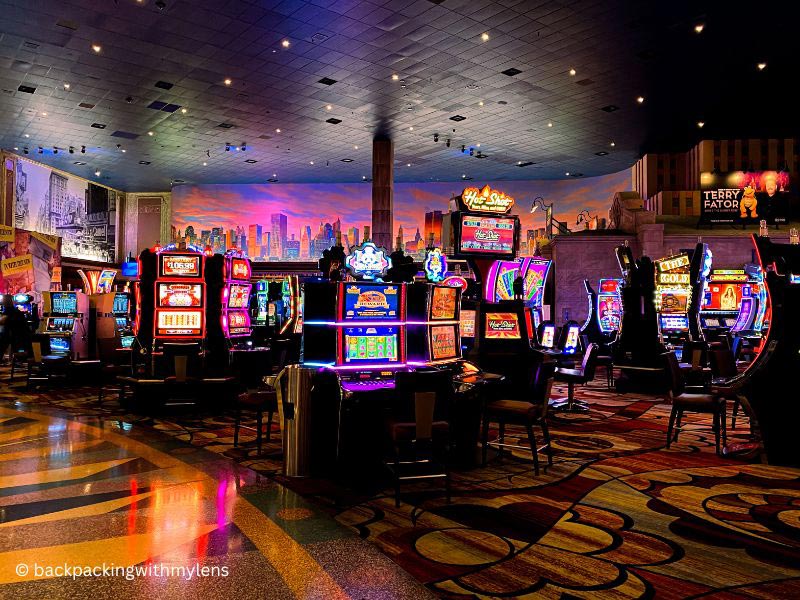
When we think of gambling activities, the initial images that often cross our minds are those of spinning roulette devices, poker chips clattering on fabric surfaces, and dice rolling across a gaming surface. While numerous consider these activities as mere hobbies fueled by luck, a more profound exploration reveals a captivating blend of strategy, skill, and community engagement that raises them far beyond basic chance. Regardless of whether you are a seasoned player or a curious newcomer, understanding the nuances of these games can greatly enhance your experience and understanding.
Casino activities have developed over hundreds of years, with various cultures contributing to their diverse histories and different forms. From the intricate strategies of 21 to the deception tactics in card games, players engage in a contest of wits as much as a risk on odds. This dynamic interplay between chance and skill creates a thrilling atmosphere that draws millions to casinos worldwide. As we delve into the world of card activities, we will uncover the methods that can tilt the odds in your advantage and the social aspects that make these games a popular choice for entertainment and engagement.
The Approach of Casino Gaming
Casino gaming frequently combine a mix of skill and luck, making them fascinating for participants who enjoy a challenge. เว็บสล็อต Each title has their own set of guidelines and strategies that can affect the outcome. For instance, in games like 21, participants are obliged to use tactics like card counting and understanding the probabilities to make smart decisions. This expertise can greatly improve their winning potential, distinguishing experienced players from beginners who may depend entirely on luck.
In contrast, games such as the roulette may seem to be entirely based on chance, but strategic thinking can also play into play. Players can select between various wagering strategies, such as the Martingale strategy, where they raise their wagers after losses. This method can create a more methodical way to the activity. Grasping the probabilities of specific wagers can also assist players make better decisions on the roulette table, demonstrating that even games of chance, strategy can enhance the experience.
Furthermore, the game of poker stands out as a game that strongly focuses on strategy. In contrast to most gaming games, the game of poker merges skill, psychology, and luck. Players must not only concentrate on the cards they are given but also consider their rivals’ actions and wagering patterns. Mastering concepts like position, the odds of the pot, and reading bluffing is essential for success. This complexity of strategy in poker often leads to a more immersive encounter for participants, where the decisions and abilities greatly impact the match’s outcome.
Understanding Likelihood and Ratios
In the world of gambling matches, probability and ratios have a crucial role in deciding a player’s potential consequences. Every activity has its own collection of guidelines that define how the probability of succeeding or failing is measured. For case, in matches like 21, participants have a chance to modify their odds through tactics, whereas in matches like the wheel, the outcomes are exclusively governed by chance. Understanding how these probabilities are measured can significantly affect how a gambler approaches the match.
Odds are typically shown in two formats: fractional and numeric. Ratio ratios show the ratio of the sum gained to the sum bet, whereas numeric odds show the total payout for a winning bet, including the initial bet. For example, if a match has odds of 5 to 1, this means that for every one unit bet, a player could gain five units if they win. Learning how to understand these ratios enables gamblers to evaluate their possible winnings and make more educated choices during gameplay.
Gamblers should also be conscious of the casino advantage, which is the casino’s inherent advantage over the players. Each match has a distinct advantage, and comprehending this idea is essential for managing one’s expectations and bankroll. Activities with a reduced house edge, such as 21 and baccarat, typically offer better ratios for gamblers compared to activities like slot machines and keno. By understanding the connection between probability, odds, and the house edge, gamblers can improve their gambling engagement and plan more effectively.
The Exciting Aspect of Table Gaming
Casino games at casinos are often seen as a hub of social interaction, bringing players together in a shared experience that goes far past the mere act of playing games. The atmosphere at a poker table can be vibrant, with players engaging not only with the game itself but also with one another. Laughter, excitement, and, occasionally, playful teasing create connections that enhance the overall enjoyment of the gaming experience. This communal aspect can turn a solitary endeavor into a lively gathering, making table games particularly appealing.
One of the intriguing elements of gaming at tables is the way it cultivates friendship among participants. Whether it’s teaming up to beat the dealer at a dice table or sharing stories between hands in a poker game, the environment encourages communication. Participants often share tips or strategies, creating a sense of community that boosts the fun. This interpersonal atmosphere can make new gamblers feel welcomed and less daunted by the competitive nature of gaming. As the game progresses, friendships may form, leading to a sense of belonging that keeps players coming back to the table.
Moreover, the social aspect of table gaming extends beyond just the participants. Dealers play a crucial role in facilitating interaction and maintaining the flow of the game. Their ability to engage players with friendly conversation and their expertise in running the table can create an welcoming atmosphere. This relationship between players and dealers adds another layer of enjoyment, where players feel bonded not only to one another but also to the staff. Such interactions are often what make the experience unforgettable, as players leave with stories to tell and connections made, reinforcing the notion that gaming at tables are truly about something greater than luck.
